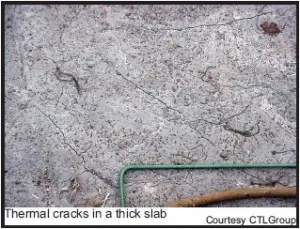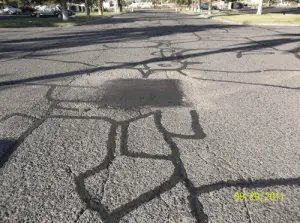When exposed area is large then temperature effect is also considered. Because, concrete expands with the increase in temperature and in the same manner it contracts with the decreasing temperature. This type of change in volume is similar to one caused by shrinkage.
When the contraction of any surface occurs then it leads to cracking. Similarly, during the expansion of the surface because of the rise in temperature also lead cracking in concrete. Concrete trying to restrain it, but as concrete is very weak in tension. Hence forth, crack begins to propagate on the surface.
In case of indeterminate structures, deformations that occur due to temperature changes can cause large effect and sometimes become the reason of very harmful stresses. And these stresses may lead to failure of a surface.
ACI has defined thermal coefficient for both expansion and contraction of concrete. Thermal coefficient depends upon the type of aggregates and the amount of aggregates in the mix. Generally coefficients are within the range of 4*10-6 To 7*10-6 Per Fahrenheit. In most of the cases average value i.e. 5.5*10-6 Per Fahrenheit is used for calculating stresses and deformations that occur due to changes in temperature.

